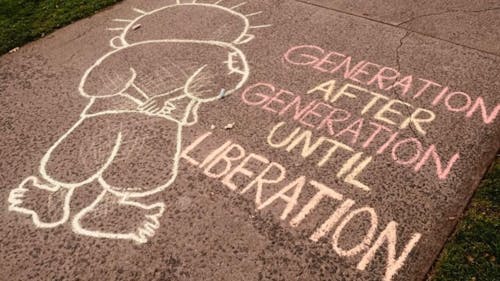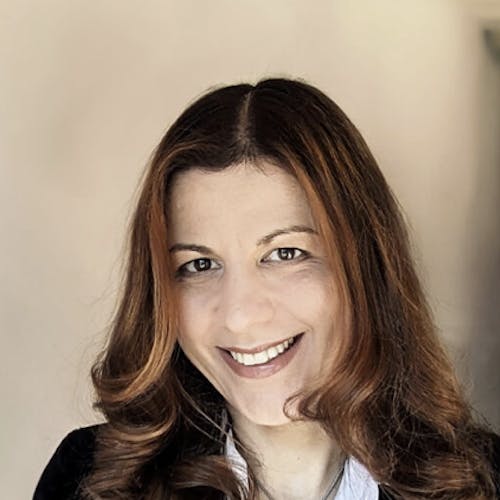U. responds to accusations of suppressing pro-Palestine messaging on campus

Students for Justice in Palestine at Rutgers—New Brunswick (SJP) recently stated that the University erased pro-Palestinian chalk messages on sidewalks during a national walkout and art build facilitated by the chapter as a form of suppression.
"University policy states that chalking done by student organizations can remain for up to five days, so we did not violate University policy," SJP said in an Instagram post.
In a statement to The Daily Targum, the University said it rushed the approval of the art build, which happened at Voorhees Mall on the College Avenue campus. This resulted in the University failing to note whether it adhered to a portion of its policy, which states that chalk art cannot be within 2 feet of any area with foliage, according to the statement.
The University stated it did not notify SJP before the removal of the chalk art but is presently working on ways to prevent similar occurrences in the future.
"Rutgers adheres to the principles of free speech and academic freedom," the statement read. "All members of our community — our faculty, students, alumni and staff — are free to express their viewpoints in public forums as private citizens, including viewpoints that the University itself may not share."
In a post documenting the incident, SJP stated that the University actively suppressed and dissuaded Palestinian voices on campus.
"This (removal) is a clear incident of anti-Palestinian racism and repression of Palestinian political activism, done at the hands of the University," the caption of an SJP Instagram post read. "How can we feel safe if our work is watched at all moments by police, by (the administration), who waste no time to literally wash away a peaceful demonstration?"
Arooj Amjad, a School of Arts and Sciences junior and art build participant, echoed a similar sentiment, saying it was apparent the University's affiliation lies with Israel, and it will go to the necessary lengths to suppress any speech that is not in line with that affiliation.
"Removal of the art that was there was a direct violation of free speech and made many students feel unheard, unsupported and isolated," she said. "(Rutgers) won't raise their voice for Palestine and won't let others do it either. It is discrimination and Islamophobia in plain sight, and yet Rutgers isn't concerned at all. Our free speech has been limited within Rutgers and outside it."
Empowerment and the opportunity to speak up drove her participation in the event, Amjad said. She said witnessing the violence in Palestine from afar felt demoralizing, but participating in social demonstrations and sharing information about the situation online provides opportunities to stand in solidarity with Palestinians from campus.
"I think it is important for us to take up space and let other students know what is going on and what the truth is," Amjad said. "By protesting, posting or attending the art build, I feel as if I am able to spread more awareness about the matter and raise my voice against the genocide of Palestinians."
She said she made two works: a poster with the phrase "We Can't Breathe since 1948," alluding to the chant that defined the 2020 Black Lives Matter movement, and a piece of sidewalk chalk art with the phrase "Palestinian Children Deserve To Live."
Amjad said the utilization of the first phrase intended to highlight how individuals responded to the killing of George Floyd and other atrocities against the Black community versus how slow they were to respond to the atrocities committed against the Palestinian community for decades.
"We appreciate the people who are raising their voice now, but it (is) upsetting that it took people so long to educate themselves on the matter, and the genocide only made the news because Israel got attacked this time," she said.
As the situation in Palestine has evolved, Amjad said she has realized how self-centered and profit-oriented people are. She said people care more about what voicing their opinions will do to them rather than the people who are directly affected by the conflict.
"They forget that this is not about them," she said. "This is about the thousands of Palestinian men, women and children who are being killed, beheaded, raped and tortured on the daily. People have lost their morals and their conscience, and since it doesn't affect them, they don't care."



